Curriculum Overview
Our Curriculum is organized into five modules over five terms, and is intended to be completed in 14 months. While it is impossible to prepare students for all of the rigors of school leadership in one year, we are confident that they will leave our program significantly better than they entered, with heads, hands, and hearts ready to bless and build God's children. Here is the basic scope and sequence of our curriculum.
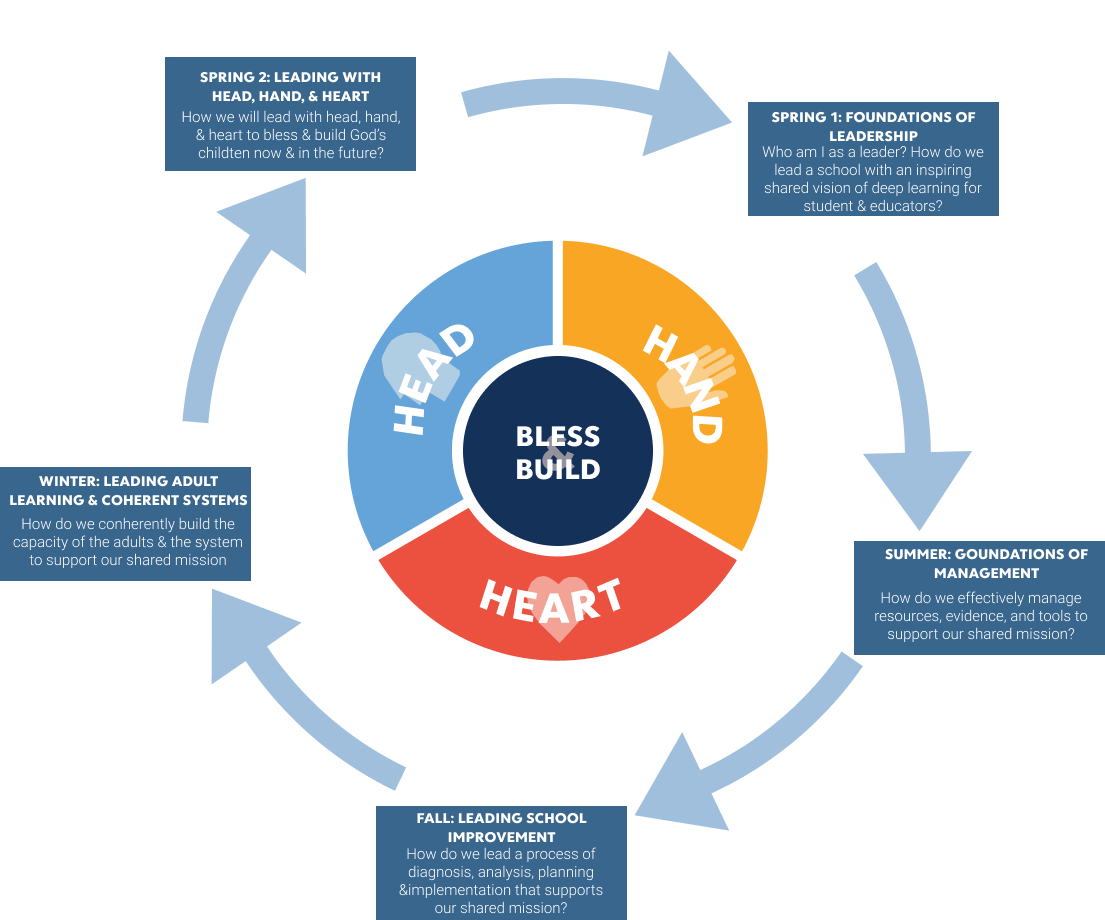
During the first term of the program we will provide the needed foundations of leadership that will support your learning throughout the rest of the program and beyond. Pete Carrol claims: “A clear, well-defined philosophy gives you the guidelines and boundaries that keep you on track” (2016, p. 62). Truly, we as “Humans are wired to seek meaning in everything we do, whether we’re sitting in an office, hiking in the mountains, or eating dinner with the family. Passion for a cause fuels energy, intelligence, and creativity” (McKee, 2018, p. 7). The overarching purpose of this term is to build a foundation in the most important theories, frameworks, and practices of faithbased leadership. The overview of the work you will be asked to complete during this first term of study can be summarized with the following question: Who am I as a leader? How do we lead a school with an inspiring shared vision of deep learning for students & educators?
This semester includes the following courses:
EDLF 627: Principal’s Role in Leading a Learning Community
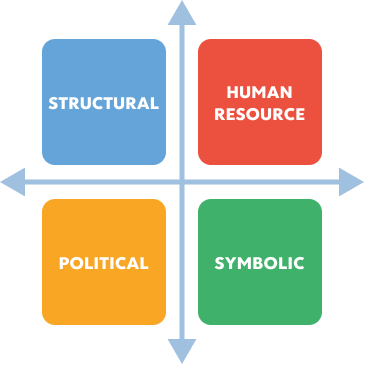
Desired Outcomes
The desired outcomes for this term are below. Students will:
- Clarify and articulate their personal mission, vision, values, and goals as an educator.
- Learn the foundational theories & practices of leadership.
- Create a plan for how they will build an inspiring shared mission and vision of deep learning in a school.
- Propose innovative approaches for pursuing your school’s shared mission and vision by creating an “ideal school.”
Connecting the Semester to the Program’s Objectives
All of the courses are designed to prepare inspired educational leaders that bless and build God’s children now and in the future. The course in this term is foundational in preparing a well-rounded leader.
Head: As students learn about the foundational theories and frameworks, it will provide them with the knowledge needed to make sense of different leadership scenarios and contexts.
Hand: Students will be asked to practice the foundational theories through case studies, simulations, and interacting with real schools.
Heart: Students will dig deeply into their own philosophies of education and the bigger why behind schools, leadership, and assessment & evaluation.
Projects and Assignments
The three major assignments that students will complete are:
- Ideal School Proposal
- Personal Leadership Development Plan (based on results from VIA Strengths Finder, School Leader Dispositions Survey, & Culturally Responsive Leadership Inventory)

Leadership and management are mutually reinforcing. Effective principals are good managers and leaders. Sir Ken Robinson observed: “Leadership is about vision; management is about implementation. Both are essential” (2015, p. 186). Similarly, Michael Fullan and Lyle Kirtman claimed: “We have never seen a great leader who was not also an effective manager” (2019, p. 51). Principals must effectively manage and leverage human, fiscal, intellectual, and physical resources to support their leadership of the shared school mission and vision in serving diverse stakeholders. This term we will focus on answering the question: How do we effectively manage resources, evidence, and tools in support of our shared mission? Principals must also find ways to assess the impact of these efforts. This term will focus on some of the foundational frameworks that will guide your leadership throughout the rest of the program and beyond. Here are some of these frameworks:
- Four Frames (Bolman & Deal)
- Datawise Improvement Process (Harvard)
- Continuous School Improvement (Victoria Bernhardt)
This semester includes the following courses:
EDLF 614: Education of Diverse Populations
EDLF 668: Philosophical Foundations of Education
EDLF 676: Data Driven Decision Making I: Concepts & Processes
EDLF 688R: Administrative Internship
Desired Outcomes
This term is structured to allow you the following experiences.
- Examine personal, historical, and systemic assumptions, structures, & practices that promote equity based on several factors (culture, race, ethnicity, SES, sexual orientation, etc.); employ appropriate strategies for challenging systems that reinforce models of inequity in education.
- Be prepared to analyze and improve the structural, human political, symbolic, and cultural frames of schools.
- Develop the data literacy and dispositions needed to authentically assess and evaluate their school’s progress.
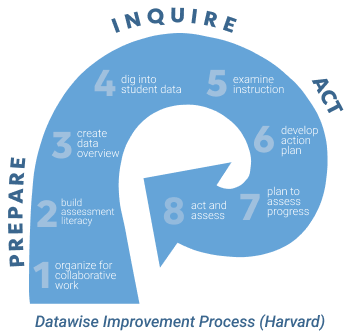
Connecting the Semester to the Program’s Objectives
All of the courses are designed to prepare inspired educational leaders that bless and build God’s children now and in the future. The course in this term is foundational in preparing a well-rounded leader.
Head: You will master the foundational theories, frameworks, and tools that will help you diagnose the current state of your school.
Hand: You will make plans for the application of these foundational theories and frameworks in diagnosing the current
state of your school during upcoming fall and winter semesters.
Heart: You will dig deeply into your own philosophies of education and the bigger why behind school organizations, equity, and data-informed decisions.
Major Projects and Assignments
The three major assignments that students will complete are:
- Equity Diagnosis & Strategic Inclusion Plan
- Four Frames & School Culture Diagnosis Plan
- Student Learning Diagnosis Plan
Ken Leithwood observed, “‘Leadership for learning’ can be described relatively simply--but accurately--as the process of (a) diagnosing the status of potentially powerful learning conditions in the school and classroom, (b) selecting those learning conditions most likely to be constraining student learning in one’s school, and (c) improving the status of those learning conditions” (2019, pp. 37-38). This semester we will really start applying a lot of the foundational learning gained during the first two terms. The overarching purpose of this term is to diagnose the current state of the school, identifying the greatest strengths and opportunities, and then working with the school community in school improvement planning and implementation. We will work toward answering the following question: How do we lead a process of diagnosis, analysis, planning, and implementation that supports our shared mission?
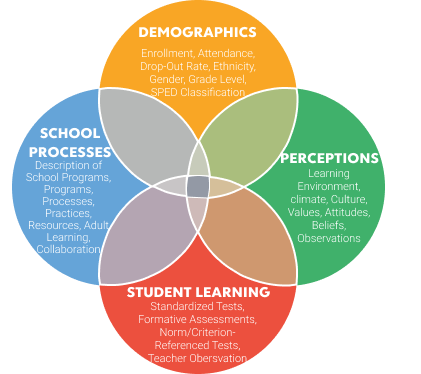
This semester includes the following courses:
EDLF 610: Human Resource Management
EDLF 677: Assessing Outcomes at Multiple Levels
EDLF 688R: Administrative Internship, 1 credit
EDLF 635R: Internship Seminar, 0.5 credits
Desired Outcomes
This semester is structured to allow you the following experiences. Use the knowledge and skills acquired during spring and summer terms to:
- Conduct a student learning diagnosis.
- Conduct a school management diagnosis.
- Synthesize the combined findings of these various diagnoses to identify to school’s greatest areas of need.
- Leverage the school’s physical, fiscal, technological, and time resources in ways that support teachers in pursuing the school’s shared improvement efforts.
- Recruit, hire, support, develop, retain, and as needed, remediating personnel.
- Working with relevant stakeholders, co-design school improvement plans that address the school’s greatest areas of need.
Connecting the Semester to the Program’s Objectives
We will help you reflect on past learnings and will introduce you to additional theories and frameworks that will support the development of your head, hand, and heart.
Head: You will learn about effective resource management, school improvement planning, and balanced evidence-based analysis and decision making.
Hand: You will diagnose your internship school, work with teachers, parents, and students in creating an improvement plan.
Heart: You will diagnose your internship school, and work with teachers, parents, and students in creating an improvement plan.
Major Projects and Assignments
The three major assignments that students will complete are:
- Student Learning Diagnosis
- School Management Diagnosis
- School Improvement Plan
DuFour & colleagues assert, “The best way to improve student learning is to invest in the learning of the adults who serve them” (2008, p. 19), pointing to the need for high-quality professional development. Such high-quality student and adult learning “must take place within, and across, each level of the organization” (Scribner, et al., 2007, p. 96), rather than in disconnected, discrete chunks. As Harvey and Holland teach, “The research shows that most school variables, considered separately, have at most small effects on learning. The real payoff comes when individual variables combine to reach critical mass. Creating the conditions under which that can occur is the job of the principal” (2012, p. 3). Similarly, Margaret Grogan observed: “Vision without systems thinking ends up painting lovely pictures of the future with no deep understanding of the forces that must be mastered to move from here to there” (2013, p.11). This semester will focus primarily on answering the following question: How do we coherently build the capacity of the adults and the system to support our school improvement plans?
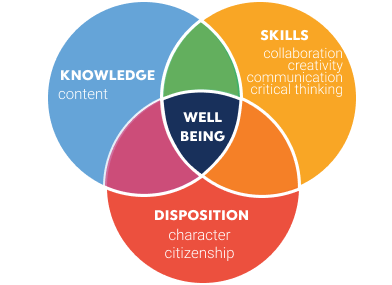
This semester includes the following courses:
EDLF 622: Educational Law
EDLF 601: Leadership for Learning Communities
EDLF 688R: Administrative Internship, 1 credit
EDLF 635R: Internship Seminar, 0.5 credits
Desired Outcomes
The purpose of this semester is to support school improvement plans and efforts by building the capacity of adults and systems in the following ways:
- Develop a growing understanding of educational law, policy, and politics in order to promote practices that afford learners an equitable education, while leveraging and influencing decision makers outside of the school to support school improvement efforts.
- Foster the collective intelligence and efforts of teachers, parents, & community in pursuing improvement plans.
- Building the capacity of adults through meaningful professional development.
Connecting the Semester to the Program’s Objectives
All of the courses are designed to prepare inspired educational leaders that bless and build God’s children now and in the future. We will introduce you to additional theories and frameworks that will support the development of your head, hand, and heart.
Head: You will develop foundational knowledge of adult learning, professional development, teaming, coaching, and systems.
Hand: You will be asked to diagnose your school’s approach for developing adults’ capacity as well as the system supports in place to build the knowledge, skills, and dispositions of adults.
Heart: Your mission, vision, values, and goals will be put to the test and solidified through boots-on-the ground experiences in leadership.
Major Projects and Assignments
The two major assignments that students will complete are:
- Professional Development Diagnosis
- School Improvement Plan Report
Congratulations! You have successfully made it to the end of this chapter of your educational leadership journey. However, you should also know that, in many ways, the actual journey is only just beginning. This final course is meant to serve as the culminating educational experience that brings all of the theory (head), skills (hand), and dispositions (heart) together to illuminate you as future leaders as to how you can achieve the stated goal of blessing and building all of God’s children now and in the future. This semester includes the following course:
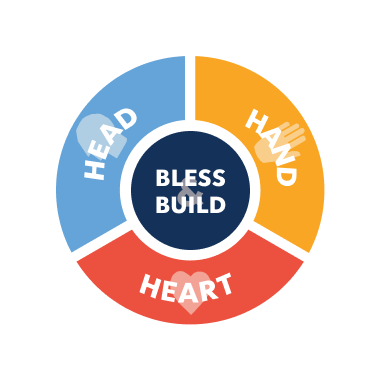
EDLF 629: Supervisor’s Role in Improving Learning
This final course is structured to allow you the following experiences:
- Revisit the primary learnings you’ve experienced up to this point in the program.
- Revisit leadership self-assessments taken earlier in the program.
- Complete and present the culminating assignments.
Desired Outcomes
The desired outcomes for this term are:
- Reflect on progress made on your personal development plans made at the beginning of the program (Retake Dispositions Survey, VIA Character Strengths, and IDI)
- Conduct an appreciative inquiry or SOAR Analysis of your personal leadership (Strengths, Opportunities, Aspirations, & Response) and present those in your Leadership Portfolio.
Major Projects and Assignments:
The three major assignments that students will complete are:
- Individual Leadership Project (ILP)
As you go through the process of diagnosis and school improvement planning, you will choose one area of the school improvement plan to work on with your principal during your internship. - Internship Portfolio
This portfolio will be put together in TaskStream and be part of your overall culminating program evaluation. There are three parts of this portfolio.
Part 1, Standards Artifacts: You will gather artifacts and evidence that demonstrate your engagement, experience, and mastery of each of the Utah Educational Leadership Standards.
Part 2, Standards Reflection: For each of the Utah Educational Leadership Standards you will write a summary to be included in your Internship Portfolio.
Part 3, Leadership Growth Plan: Relying on what you’ve learned about yourself in courses, internships, and leadership surveys, reflect on your growth throughout the program in knowledge (head), skills (hand), and dispositions (heart). Share some of your goals for future growth and development and how you might work toward those goals. - You will be given a realistic scenario to work through with other students in your cohort. As a team, you will problem-solve this scenario and present your proposed solutions to a panel of BYU